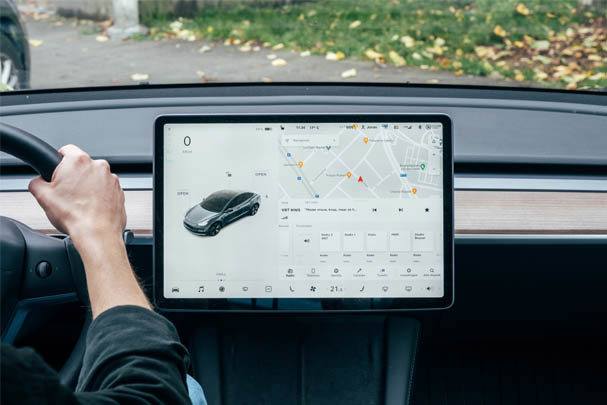
Nationwide Vehicle Contracts looks into how technological advancements such as self-driving cars will shape the future of car leasing.
The car leasing industry is currently undergoing massive change. In the near future, we’ll see the adoption of electric vehicles unanimously, and with this, various other technologies will be introduced.
One of these is self-driving or autonomous vehicles. An exciting but also scary prospect, autonomous vehicles can drive themself thanks to radar and lidar technology, and all we have to do is simply sit behind the wheel.
In this blog, we’ll explore how technology is shaping the future of car leasing and how the changes will impact UK driver’s leasing experiences.
The Evolution of Car Leasing
Car leasing has been popular in the UK for a while now, offering individuals the chance to drive a new vehicle without committing to ownership. Over the years, it’s evolved from operating on fixed terms to accommodate changing customer preferences and technology advancements.
With the rise of digital connectivity and data analytics, car leasing has incorporated more flexible lease terms based on individual driving habits.
We’ve also seen leasing companies begin to offer packages, not just the vehicle. Features such as maintenance, over-the-air updates, and shared ownership are now common within leasing.
Self-Driving Vehicles: The Autonomous Revolution
Autonomous vehicles have the potential to change the whole car leasing industry. One of the main benefits is the massive increase in car safety. Autonomous vehicles use advanced sensors, real-time data processing, and AI-driven decision-making to significantly reduce the risk of accidents.
For motorists, this reduces the risk of accidents by human error and lowers insurance costs of lease vehicles.
Furthermore, autonomous vehicles open a new avenue for the car leasing industry. The concept of ‘mobility as a service’ could become more common, allowing users to summon a self-driving vehicle when needed and reduce the need for long-term lease commitments.
The UK's Approach to Self-Driving Cars
The UK Government has been at the forefront of fostering support for developing and testing autonomous vehicles. Through the Centre for Connected & Autonomous Vehicles, which invests in new transport technologies to create a thriving self-driving vehicle sector, the UK Government recognises the safety and environmental potential of autonomous driving.
They’ve also introduced plans to roll out self-driving vehicles on UK roads, hoping to spark a transport revolution to improve road safety and connect communities better. It’s backed by £100m and could be rolled out by 2025.
The UK has also established a regulatory framework to facilitate the testing of autonomous driving on public roads. They introduced the Automated Lane Keeping System, which permits using self-driving technology under certain conditions.
Connected Cars and IoT
Connected cars that are integrated with the Internet of Things (IoT) have revolutionised the automotive industry. The IoT, which is any device with sensors and processing ability to exchange data with other devices, has enhanced the overall driving experience and leasing experience for UK drivers.
By collecting real-time data on vehicle performance, driving patterns, and maintenance needs, connected cars can provide drivers with personalised insights and recommendations.
These insights can optimise the leasing experience by offering predictive maintenance alerts, ensuring timely servicing and repairs, and reducing downtime,
Furthermore, a data-driven approach can allow for more flexible leasing packages that suit individual driving habits.
Electric Vehicle Leasing
The popularity of electric vehicles (EVs) has been soaring within the UK car leasing market, driven by a combination of environmental consciousness, advancing technology, and government incentives. By 2022, 22.9% of all new cars registered were electric or plug-in hybrid (ZapMap).
Electric vehicles offer significant environmental benefits for those looking to reduce their carbon footprint. They produce zero tailpipe emissions and, therefore, contribute to reducing greenhouse gas emissions and air pollution.
There are also various incentives to lease an EV car in the UK. These include grants for purchasing or leasing electric vehicles, reduced tax for EV drivers, and exemptions from congestion charges in certain areas.
AI and Voice-Activated Technology
In the last few years, we’ve started to see artificial intelligence and voice technology be featured in modern lease cars. AI-powered features enable cars to understand and adapt to driver preferences, while voice-activated assistants allow drivers to control various vehicle functions without taking their hands off the wheel or eyes off the road.
The convenience of both systems is evident and enhances the driver experience and road safety. AI systems such as adaptive cruise control and lane-keep assist in keeping your car safe by monitoring surroundings and helping prevent accidents.
Environmental Sustainability and Green Leasing
The main catalyst for change in the leasing industry is environmental concerns. In the UK, there’s a strong commitment to increase the emergence of green leasing options and promote eco-friendly vehicle choices.
This is highlighted by the Government’s ambitions to phase out the sale of new petrol and diesel cars by 2030.
Because of this, car leasing companies in the UK have begun to offer deals on electric vehicles and plug-in hybrids. They’ve also introduced package deals with charging infrastructure to help more drivers choose an EV.
Looking for more electric leasing advice? We’ve produced a range of blogs on electric car leasing, such as 15 Electric Car Questions You Wanted To Know and Tips to Reduce Your Carbon Footprint While Leasing.
We are also one of the UK’s largest electric car leasing brokers, offering a range of electric and hybrid deals to suit your every need.

